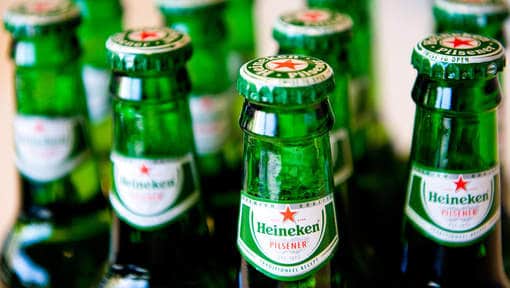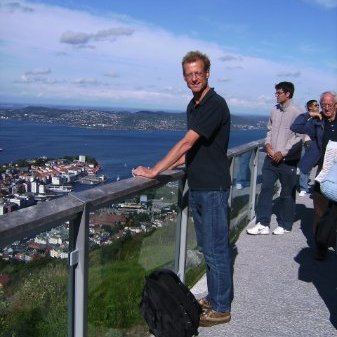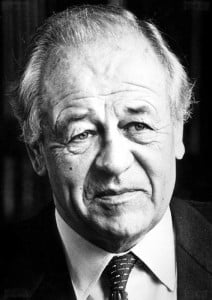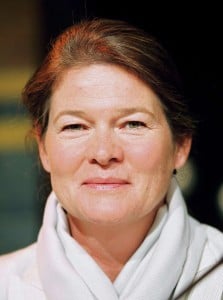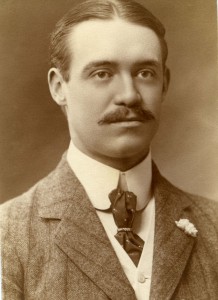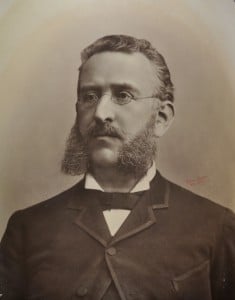Heineken’s Success Story
On August 22, the book ‘Heineken 150 years: brewery, brand and family’ was published (Amsterdam: Boom 2014). Author Bram Bouwens, a researcher at Utrecht University, was allowed to dig into the company archives for information and to talk to people in the highest ranks of the company. Alongside his historical research, he casts light on the success of the iconic beer brand.
By Anne Brugts, Content Manager, Story Terrace
Bram Bouwens is busy. When I speak to him, his expertise is being widely sought due to last week’s speculation about the possible takeover of the company. ‘The telephone is ringing constantly,’ he tells me. ‘Several journalists want to hear my views on the subject.’ The company didn’t yield.
Sympathetic hotshots
How did Bram become a Heineken expert? ‘In celebration of the 150-year anniversary of Heineken, the company wanted to publish its story in book form. Therefore, they got in touch with Utrecht University and together with my colleague (Keetie Sluyterman, ed.) I was appointed to the job. Such assignments are tricky. They’re an exciting challenge, but at the same time it’s our task to maintain our objectivity as researchers. We got Heineken to promise that we could see any document and speak to any person we requested.’
A special commission was set up to track the progress of the researchers. ‘People with top positions within Heineken joined it. Major shareholder Mrs De Carvalho, for example. They were all very open and sympathetic,’ says Bram.
Freddy’s mythical status
In seeking to explain Heineken’s success story, the researchers looked at the obvious leading characters first. ‘By many, Freddy is considered the greatest Heineken ever. I don’t totally agree, but the man has acquired a mythical status.’
Freddy knew every corner of his company, Bram tells. ‘He was the head of the Board of Directors and a major shareholder, but also went from café to café to sell his beer. Among other places, he did this in the States, where he was to gain a foothold. On the west coast, he personally made Heineken the biggest name in imported beer since prohibition in 1930.’
Besides, Freddy was a marketing man at heart. ‘Under his regime, Heineken started to engage in high-level branding. At the same time, his administrative policy kept Heineken small. He voted against any acquisitions where more than 50 per cent of the cost had to be funded out of financial sources other than Heineken’s own capital.’ Only small acquisitions got his permission. ‘”Stringing pearls”, they called it within Heineken. Slowly, and with small acquisitions only, the pearls formed a necklace. But because of this strategy, Heineken missed the boat in the nineties and were overtaken by competitors.’
Big acquisitions
After Freddy’s death in 2002, the Heineken story picked up again where it left off, Bram tells me. ‘Mrs. Charlene De Carvalho-Heineken, who as Freddy’s successor became a member of the Board of Governors of Heineken Holding, wanted to stay connected to Heineken’s tradition. But she adopted a new strategy on acquisitions. The 50 per cent rule disappeared and Heineken acquired bigger companies. As a result, it has reached its current position at number 3 in the global beer market.
How does Bram account for this achievement? ‘In the mid-19th century, when founder Gerard started his company, there were 500 breweries in Holland alone. Now there’s just a bunch of them left. How can we explain Heineken’s survival and the demise of others? That was the question we asked ourselves in “Heineken 150 years”.’
Technological innovation
‘The company got off to a flying start,’ Bram says. And that was all due to Gerard’s eye for innovation. ‘He saw technological innovation as the spearhead of progress. From the outset, that was how he distinguished his brewery from others. For example, he was one of the first to change to a different kind of pilsner; he used a better yeast; and he specialised in cooling systems.’
Gerard’s son and successor Henry continued to innovate. ‘He was a true technician, got his PhD with research into an unheard-of subject and focused especially on the quality and preservation of the beer. By the way, he was quite a good pianist as well and once even played on the stage of Amsterdam’s Concert Building.’
Focus on internationalisation and branding
A second factor that accounts for Heineken’s success is the direct focus on internationalisation. ‘Gerard quickly brought his beer to the attention of foreign buyers, was present at global exhibitions of innovative products, and won international awards. Besides that, he bought small breweries outside the Dutch borders.’
The focus on internationalisation went hand-in-hand with successful branding of the product. ‘No other company is so strongly associated with a name. The product, the family and the company: it’s all “Heineken”. You see that hardly anywhere else these days. Look at big beer brand Jupiler, for example. That’s distributed by Inbev. I think this consistency in the branding contributes to the power of Heineken.’
Heineken’s success formula has thus, according to Bram, much to do with technological innovation, internationalisation and, not least, the branding of the family name. Would the family sacrifice that brand for money? Bram: ‘I don’t believe so. In the history of the company, there have been comparable situations and, every time, the importance of keeping the company within the family has triumphed. That continuity has been there for 150 years and I don’t think the family will break from the tradition.’
__________________
About us: Story Terrace helps customers to capture personal stories in beautiful books alongside a professional writer. Our writers have a range of backgrounds and interests, sharing one passion: Portraying individuals through carefully crafted anecdotes and lively stories.
For more information on having your stories written down, send an e-mail to info@ or get in touch via our contact form.
This month we celebrate 150 years Heineken. Also read our article Heineken brand ambassador: the beer mat. What does Heineken mean to you?
